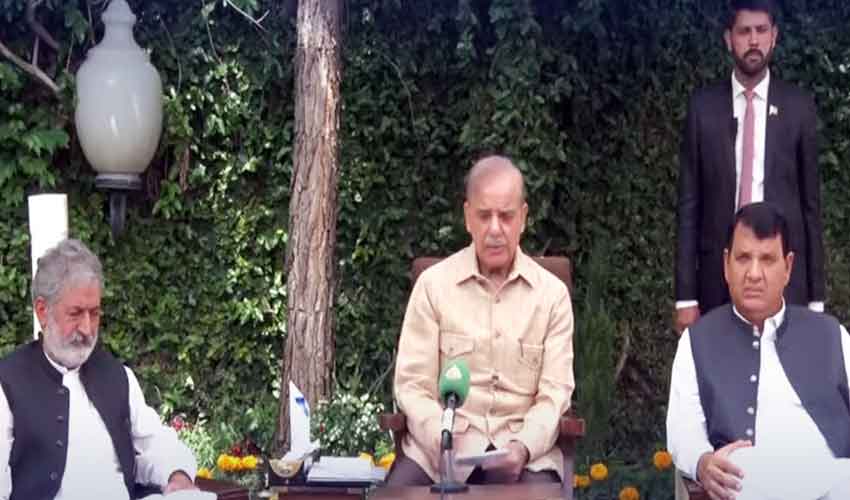PM thanks army chief Gen Asim Munir for helping eliminate smuggling
Shehbaz says economy cannot be strengthened without ending smuggling
Shehbaz says economy cannot be strengthened without ending smuggling
Cristiano Ronaldo treats fans to snapshots of blissful moments spent with Georgina
Spox highlights report's failure to address grave humanitarian issues such as the situation in Gaza, IIOJK
Guy represented Zimbabwe in 46 Tests and 147 ODIs between 1993 and 2003
Tech giant is poised to elevate consumer experience by bringing cutting-edge AI capabilities directly to its devices
Services were discontinued by the Pakistan Tehreek-e-Insaf (PTI) government due to unpaid bills to internet providers.
Owner attributes her unusual colouration to biliverdin, benign bile pigment encountered in womb
PML-N's top gun laments lack of effective communication between political factions
Prince William shares glimpses of the inspiring mental health project in action
Shehbaz says economy cannot be strengthened without ending smuggling
Read all facilities to be provided in the Karachi cattle market
Court annuls ECP decision to order re-election at 12 polling stations of PB-51 Chaman constituency
Pakistan Autism Society says there are approximately 350,000 children suffering from autism disorder in country
Jacen Russell-Rowe sealed victory for Columbus
A case has been registered against the accused and the investigation is underway.
Gross domestic product increased at a 1.6% annualized rate last quarter
Cristiano Ronaldo treats fans to snapshots of blissful moments spent with Georgina
Prince William shares glimpses of the inspiring mental health project in action
Tech giant is poised to elevate consumer experience by bringing cutting-edge AI capabilities directly to its devices
It is the most recent confrontation between the police and students, who are angry over large number of people dying in Israel's war with Hamas
Since Ayesha's health is stable, she is free to go back to Pakistan
Owner attributes her unusual colouration to biliverdin, benign bile pigment encountered in womb
Implementing reporting standards 18 has its challenges, but offers long-term benefits

